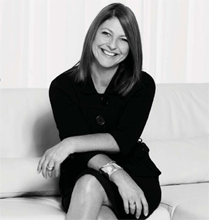Hello, You! Sarah Jessica Parker Stars in the Ultimate SATC Tribute #USVogue
Sarah Jessica Parker is Vogue’s digital cover star: best known for playing the iconic Carrie Bradshaw in HBO’s Sex and the City, watch as SJP strolls through the streets of New York celebrating 25 years since the show’s premiere.
Also loved this interview with SJP who’s launching her own literary imprint and author Elysha Chang in Vanity Fair
Vanity Fair: When and where do you read? How do you make space for it?
Sarah Jessica Parker: I read everywhere I can. I tend to not think of it as inappropriate anywhere. We were a family of readers. Early on, it was sort of imposed upon us. My mother believed that a person should never walk out of a house without something to read. We would go to museums or even the symphony; those are pretty daunting experiences for very young people because they can get bored, but she would make us bring books, and we would just sit there and look at books and listen to the music, or we would eventually end up on a bench in a museum with a book.
And at a certain point in all of our lives—I’m one of eight—it just became our own choice and our own habit to always leave the house with something to read. It’s just kind of a part of my life, and it’s one of the most important parts of my life. And even on the set, the minute they call “cut,” I have a book within reach. I hopefully have a bag that’s the character’s purse, or a tote bag or a Gristedes bag, where I can stick a book and reach for it the minute they call “cut.” For many people, it’s a curiosity because it seems like it removes me from the work I’m doing. But actually, it keeps me focused because there’s so much chaos on a set in between takes. Sometimes I feel that it appears that I’m antisocial, but it’s just what maintains calm for me. I read on the subway’ I read waiting for meetings; I read while I’m waiting for someone to log on to a Zoom. I read anywhere I can. I’m always hoarding books and trying to find new books. And even though I have plenty to read, I’m always kind of panicked that I don’t have enough—as if it’s food.
That’s funny, my parents are both classical musicians, and so some of my earliest memories are of going to rehearsals and lying in between rows of seats reading a book, which I hadn’t thought about in years.
Aren’t you glad you have those memories, though? Aren’t they the best?
You’re getting the book but also the music, even if you’re not realizing it.
My mom was right. Exactly. And then you develop a taste for music and a taste for art, and you’re kind of getting a big, full, rich world.
At a lunch for A Place for Us, you said that you had a certain anxiety about coming into the book world feeling like you were a reader and not an editor, and that you were worried that people wouldn’t take the imprint seriously. You’ve published three books since then. Now that you’re launching this new imprint, do you feel any differently?
I feel a little bit more informed, and it’s helpful to have published books that were critically successful. It’s hard to not want to be taken seriously by the trade, because that’s the only way you can get your hands on manuscripts that are exciting. I have more bona fides, but my concerns remain to the degree of: Can I do right by this book? Can we find a way to make sure we’re connecting with libraries and book sellers and then, of course, ultimately readers?
I always feel nervous about the responsibility attached to it. It’s somebody’s, in many cases, 5, 10 years of solitary work: quiet, secretive to some degree. And in some cases, it’s been painful financially and emotionally. There’s just so much at stake for these writers. I tend to be nervous, anyway, about everything that matters to me. Maybe that’s a good thing.
You’re on movie and television sets, and on theater stages—does that preparation and anxiety translate at all to the preparation and anxiety leading up to having a conversation with an author whose book you want to acquire, or to publication day? Or does it feel very separate?
I wish it would help me feel like, Okay, someone’s going to call action, and I’m going to have a meeting with a writer and plead my case. But it doesn’t because I’m only myself; I have no lines I can count on. I do’’t have a script to follow. I can only just share with an author how much their work has meant to me.
You’ve said before that you’re not interested in the adaptation potential of a book. Is that still the case?
What I was trying to express was that I didn’t want to co-opt an author and make them feel that that was my end point, that I just wanted to get my hands on the rights, you know? The experience of reading is so special, it’s so unique. If it came to be that an author felt that I was the right person to pursue the screen rights, that would be a cherry on the sundae.
What are you reading now?
I’m finishing a manuscript, which is going to go to auction. I feel like I shouldn’t say the name. But I can walk into my little room where I keep my treasure trove of books, and I will tell you what I’ve been collecting. There’s a Katherine Corcoran book called In the Mouth of the Wolf, a book called The Golden Spoon by Jessa Maxwell, and a book by Jacqueline Bublitz, Before You Knew My Name. I found an old book by a man named Gilbert King, a Pulitzer Prize–winning book called Devil in the Grove. I just read all of Claire Keegan’s, in a row. One of my favorite nonfiction books this year was Patrick Radden Keefe’s collection, Rogues.
It’s always very fun seeing your current reads on social media.
It’s the least controversial thing I feel like I can do on Instagram, so I’m always happy to do it.




